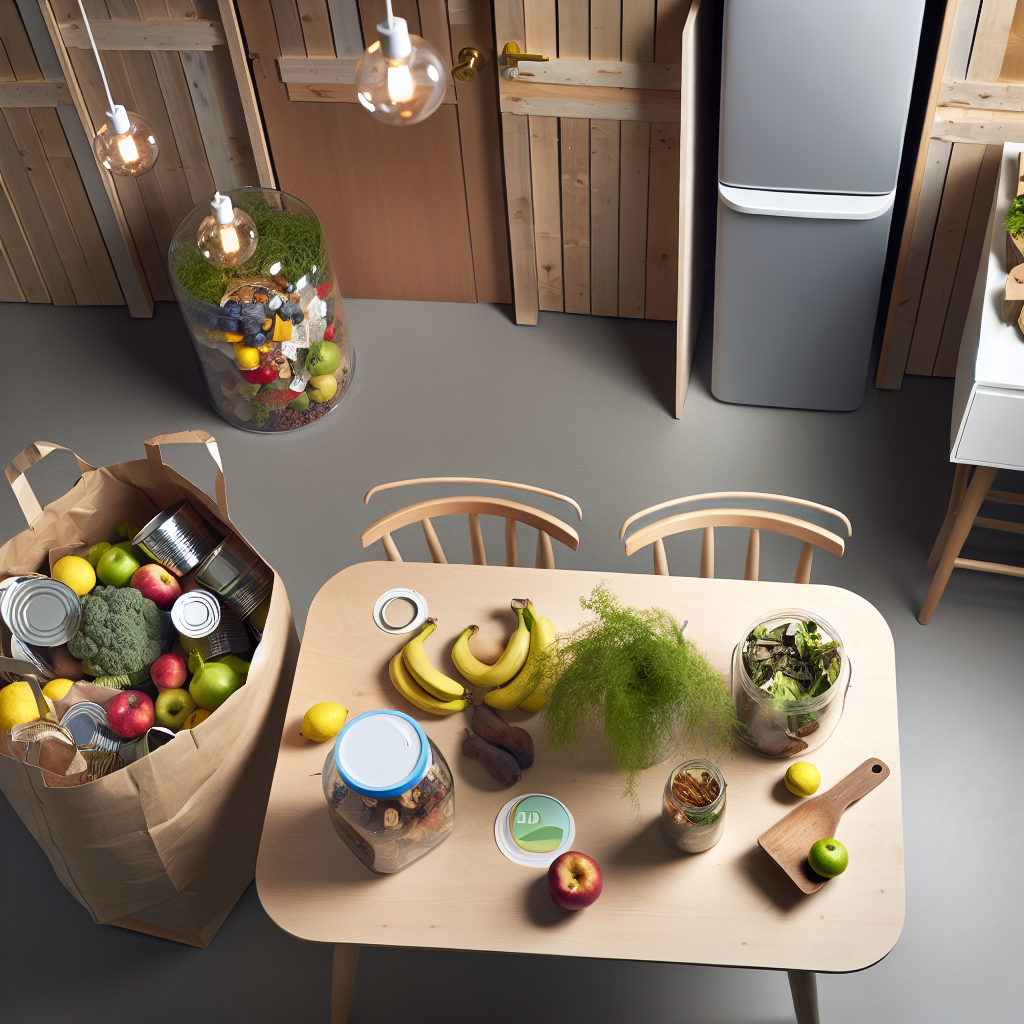Top 10 Eco-Friendly Kitchen Hacks That Will Save You Money on Groceries
Introduction
Welcome back to Frugal Zeitgeist, where making a difference doesn’t have to be expensive! Nowadays, being eco-friendly isn’t just a trend. It’s a necessary lifestyle change that helps make the planet healthier—and it can also save you money. Who knew that doing good could be so good for your bank account? Check out these top 10 eco-friendly kitchen hacks that will not only shrink your grocery bill but also change the way you live sustainably!
1. Meal Planning
Let’s be honest, nobody likes those last-minute grocery store trips when you realize you forgot an important ingredient for dinner. Meal planning is your new best friend. It saves you from feeling guilty about ordering pizza and helps you reduce food waste.
- Advantages: You’ll know exactly what you need, which stops you from buying things you don’t. Plus, you’ll use up what you already have before it goes bad.
- Minimizing Waste: Plan meals with ingredients that can be used in multiple recipes, so nothing goes to waste.
- Planning Tools: Apps like “Mealime” and “Yummly” or even sticky notes on your fridge can help you make delicious, waste-free meals.
2. Bulk Buying
Channel your inner Boy Scout by being prepared and buying in bulk.
- Benefits: Buying in bulk reduces waste and the amount of packaging you use—it’s a win-win for going green.
- Packaging Waste: Fewer trips to the store mean fewer plastic bags.
- Items to Consider: Think long-lasting items like rice, pasta, beans, nuts, and toilet paper. Sadly, you’ll have to find love and happiness somewhere else!
3. Reusable Storage Solutions
Say goodbye to those sneaky plastic bags that always seem to multiply in your kitchen drawers!
- Alternatives: Try using glass jars, silicone bags for packed lunches, and beeswax wraps for sandwiches.
- Cost Savings: Although they might seem pricey at first, these alternatives last longer and end up saving you money.
4. Composting Kitchen Scraps
Embrace the circle of life right in your backyard!
Composting turns banana peels and coffee grounds into garden gold. Whether it’s a small indoor bin or a large outdoor composter, you’re reducing waste while making nutritious soil for your plants.
- What to Compost: Fruit and veggie scraps, eggshells, and coffee grounds.
- What to Avoid: Dairy, meat, oils, and that old mixtape from 2006.
5. Regrow Your Leftovers
Want to be a sprouting superstar? Many veggies can grow back in your kitchen!
- Step-by-Step: Save the roots of veggies like green onions or lettuce, put them in water, and watch them regrow.
- Vegetables & Herbs: Try regrowing celery, basil, and even potatoes.
- Benefits: This not only cuts down grocery costs but reduces waste and the need to buy produce.
6. Energy-Efficient Cooking Techniques
Swap out your stovetop for something more energy-saving—like pressure cookers, slow cookers, and electric kettles!
- Energy Savers: These gadgets use less energy, helping to cut down your electric bills.
- Alternative Cooking: Try no-bake or raw recipes for a fun cooking adventure.
- Planet Love: Using less energy in cooking helps lower your carbon footprint.
7. DIY Cleaning Products
Who knew your kitchen staples could double as cleaning products?
- Recipes: Mix baking soda and vinegar for a powerful cleaner, while lemon juice can freshen up your microwave.
- Cost-Effectiveness: Store-bought cleaners, be gone! These cheaper, chemical-free options are easy on your wallet.
- Reduced Chemicals: Fewer harsh chemicals mean a safer home for you and your loved ones.
8. Seasonal and Local Eating
Eating seasonally and locally is great for your taste buds and the planet.
- Why It Matters: Seasonal produce is fresher, often cheaper, and needs less transportation.
- Support Local: Farmers’ markets or local farm stands are great spots to find fresh earth-friendly produce.
- Seasonal Recipe Ideas: Try pumpkin soups in the fall and berry salads in the summer!
9. Save and Reuse Cooking Water
Believe it or not, your pasta water can do more than steam up your kitchen!
- Reusing Water: Save water from cooking veggies or pasta to use in soups and broths.
- Plant Power: Use that vitamin-rich water to give your plants a boost.
- Efficient Management: Small changes in water use can really cut down waste.
10. Creative Leftovers Management
Nobody likes old lasagna staring back at them in the fridge. Be the leftovers hero your kitchen deserves!
- Meal Creativity: Turn leftovers into new meals—yesterday’s stir-fry can become today’s spring roll filling.
- Proper Storage: Use labeled jars to keep track of what’s inside and when you stored it.
- Freezing Techniques: Freeze what you can’t eat right away. It extends shelf life and reduces waste—it’s like food time travel.
Conclusion
Reduce, reuse, and save while cutting down those pesky grocery bills. Start a green revolution in your kitchen. Small changes can make a huge impact, and these hacks are your ticket to a planet-friendly lifestyle!
Join the Frugal Zeitgeist family today. Share your own eco-friendly kitchen hacks in the comments below! Tell us which tips you’re using and how they’re changing the way you cook.
